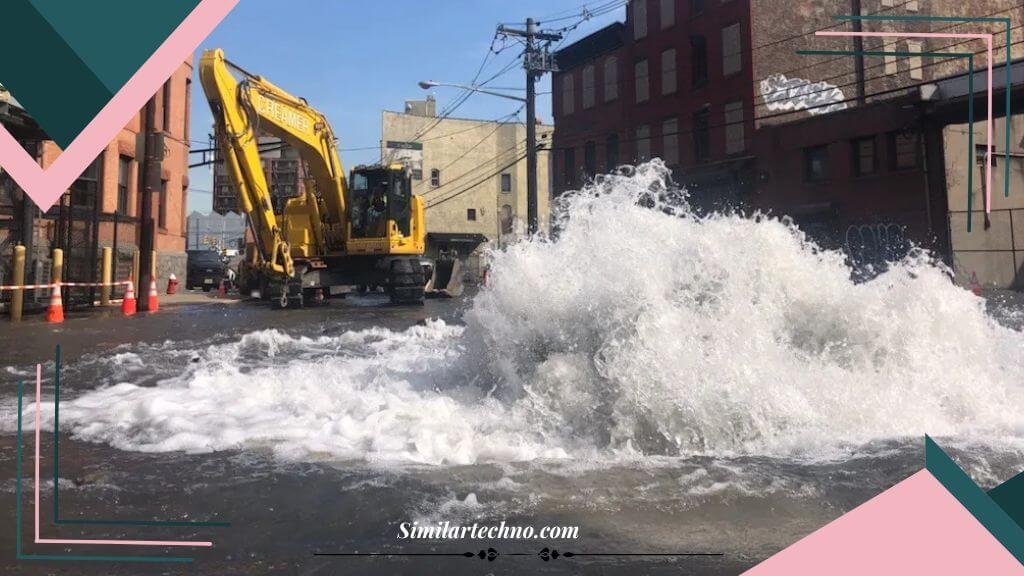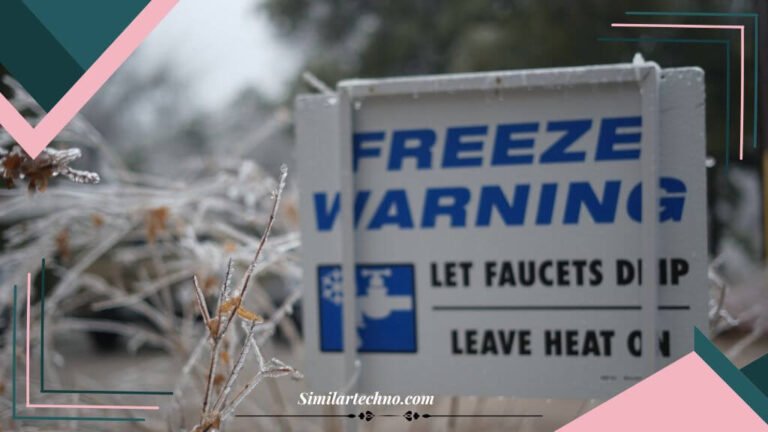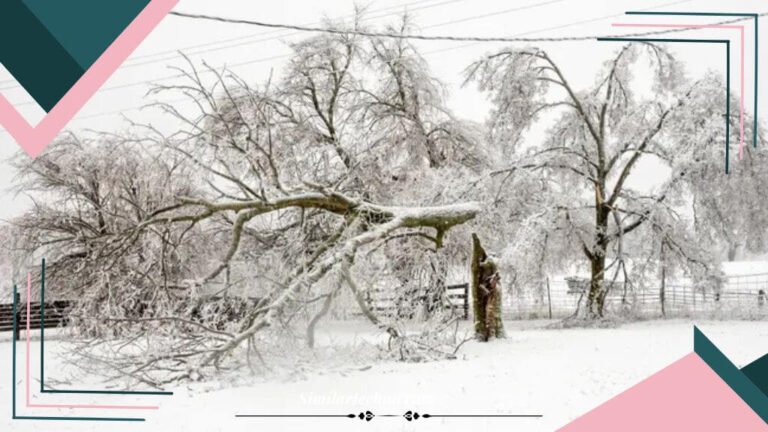Hoboken water is something I rely on every day, and I can confidently say it’s more than just a convenience—it’s essential to my daily routine. Living in Hoboken for several years, I’ve experienced firsthand how safe, clean, and accessible the water is here. From drinking a refreshing glass from the tap to using it in cooking, I’ve always trusted that it meets high safety standards. I’ve seen how the city ensures water quality through regular testing and sustainable practices, and honestly, it’s one of the things I love most about living here. Let me share why Hoboken Water stands out for me.

The Source of Hoboken Water
Hoboken water comes from a few key sources in the region. The primary source of the city’s water supply is the nearby reservoirs and rivers that are part of the more extensive water system managed by the Jersey City Municipal Utilities Authority (JCMUA). The water is collected, transported to treatment plants, cleaned, and purified. After the treatment, it is distributed to homes and businesses across Hoboken. These reservoirs, such as the Boonton Reservoir, are fed by natural water sources from surrounding areas, ensuring that Hoboken water remains fresh and reliable. The city takes great care in managing and maintaining these sources to ensure that the water is safe to drink and environmentally sustainable for long-term use.
How good is the water quality in Hoboken?
The quality of Hoboken is consistently high, making it one of the area’s cleanest sources of tap water. The water goes through a thorough treatment process, including filtration and disinfection, to ensure it meets safety standards. The city regularly tests the water for contaminants, such as chlorine, lead, and bacteria, and publishes the results for the public to review. As a result, Hoboken water is clear, fresh, and free from harmful substances. The water also has a good mineral balance, essential for taste and health. With strict monitoring, the water is safe to drink straight from the tap, so many residents, including myself, prefer it over bottled options. The dedication to quality makes Hoboken reliable and trustworthy.
Read More: Freeze Warning: Stay Safe and Warm During 2025
History of Hoboken’s Water Supply
The history of Hoboken Water dates back to the city’s early days. In the 1800s, the water supply system was first established by constructing essential wells and small reservoirs. Over time, as the population grew, so did the need for a more reliable and efficient water system. By the late 1800s, Hoboken invested in a more extensive, modern water infrastructure, including water treatment plants and pipelines. The water system continued to expand throughout the 20th century with technological improvements and water purification methods. Today, Hoboken Water is part of a highly advanced system, ensuring clean and safe water for all residents. Through continuous upgrades, the city’s water supply has become more sustainable and efficient, supporting the community’s growing needs while maintaining high-quality standards.
Is Hoboken Water Safe to Drink?
One key factor that makes Hoboken water safe to drink is the strict treatment process it undergoes before reaching residents. The water is filtered to remove dirt, debris, and harmful chemicals. After filtration, it is disinfected with chlorine to kill bacteria or viruses. Regular testing is done to check for contaminants, ensuring that Hoboken water meets the safe drinking standards set by local and federal regulations. The water is also monitored for things like lead and heavy metals, ensuring it is free from dangerous substances. Additionally, the city’s commitment to maintaining and upgrading its water system helps to prevent issues so residents can feel confident drinking the water directly from the tap. This dedication to water safety is why so many people trust Hoboken Water.
Testing
Hoboken water is tested regularly to ensure it remains safe for consumption. The city conducts routine water quality tests at multiple points in the system, checking for contaminants such as bacteria, chlorine levels, and heavy metals like lead. These tests are done daily, weekly, and monthly to maintain consistent safety standards. Additionally, the results are shared with the public so residents can stay informed about the water quality. The testing process follows strict guidelines set by local and federal authorities, ensuring that Hoboken meets or exceeds all health and safety requirements. This regular monitoring allows the city to quickly address potential issues, providing peace of mind to all who rely on the water for drinking, cooking, and daily use.
Hoboken Water and the Environment
Hoboken Water is carefully managed to protect the environment while ensuring clean water for its residents. The city focuses on sustainable practices in both water collection and treatment. For example, the reservoirs that supply the water are maintained with natural filtration methods to reduce pollution. In addition, Hoboken invests in energy-efficient water treatment technology, which reduces its carbon footprint. The water treatment plants also use eco-friendly chemicals, ensuring that harmful substances are not released into the environment. The city encourages residents to conserve water by promoting smart usage, helping to reduce overall demand and protect local water sources. By combining eco-friendly practices with advanced technology, Hoboken ensures that Hoboken water remains not only safe to drink but also sustainable for future generations.
Read More: Ice Storm Warning: Stay Safe and Prepared! 2025
Usage
Hoboken water plays an essential role in the daily lives of its residents. People use it for drinking, cooking, and washing. In homes, it’s common to see water flowing for showers, washing dishes, and doing laundry. Many also rely on Hoboken water for watering plants or cleaning their homes. Businesses in Hoboken, like cafes and restaurants, use it for food preparation and customer service. Public areas such as parks and schools also use water for landscaping, restrooms, and general maintenance. As part of a busy city, residents are mindful of their water use, especially with efforts to conserve and reduce waste. Despite being a high-demand resource, Hoboken water remains accessible to meet the daily needs of everyone in the community.
Troubleshooting Hoboken Water Issues
If there is a problem with Hoboken water, it’s essential to address it quickly. The first step is to check if the issue is isolated to your home or affecting other residents. Check for leaks or issues with your plumbing system if it’s just your property. If the problem is widespread, contact the Hoboken Water Department or the Jersey City Municipal Utilities Authority (JCMUA) for assistance. They can provide updates on water disruptions, repairs, or any maintenance in your area. For problems like discoloured or bad-tasting water, it’s also helpful to run the tap for a few minutes to clear any sediment. If the problem persists, report it immediately so the team can investigate and resolve it. The city works quickly to ensure that Hoboken remains safe and reliable for all its residents.
FAQs
Is Hoboken safe to drink?
Hoboken water is regularly tested and meets safety standards, making it safe to drink.
Where does Hoboken get its water from?
Hoboken water comes from the nearby reservoirs and undergoes thorough filtration and treatment.
How often is Hoboken tested?
Hoboken water is tested daily, weekly, and monthly to ensure its safety and quality.
Can I use Hoboken water for cooking?
Hoboken water is clean and safe for cooking and other daily uses.
What should I do if there’s an issue with Hoboken water?
If you encounter an issue with Hoboken water, contact the water department for assistance and updates.
Conclusion
In conclusion, Hoboken Water is a reliable and safe resource for all residents, meeting strict safety standards and undergoing regular testing to ensure quality. Sourced from nearby reservoirs, the water is filtered and treated to remove contaminants, providing clean water for drinking, cooking, and daily use. The city is committed to sustainability, using eco-friendly water collection and treatment practices. With constant monitoring and proactive measures, Hoboken water remains a trusted supply for the community. Residents can quickly contact the water department for help if any issues arise, ensuring that Hoboken remains safe and accessible for everyone in the city.







